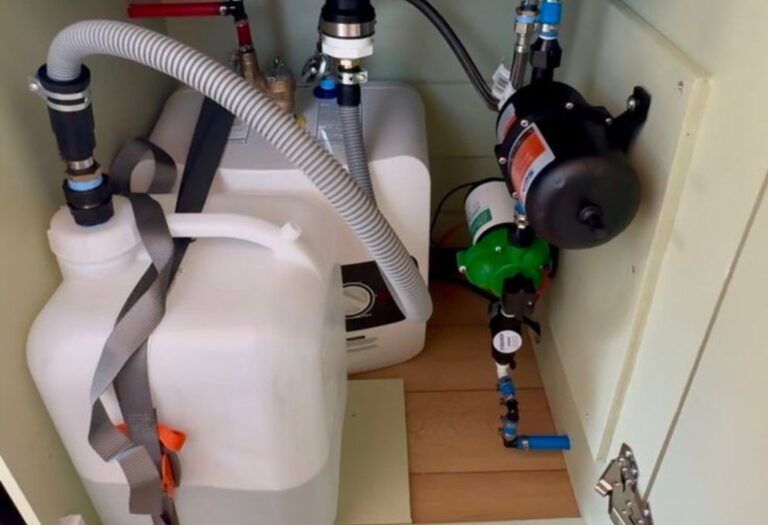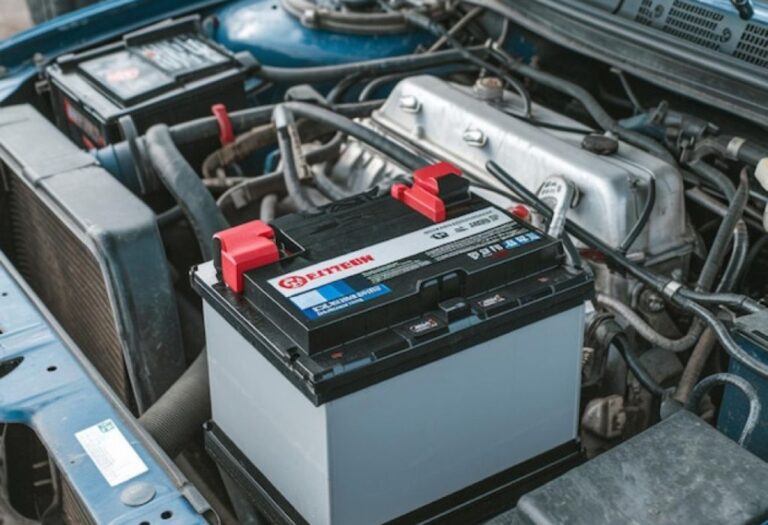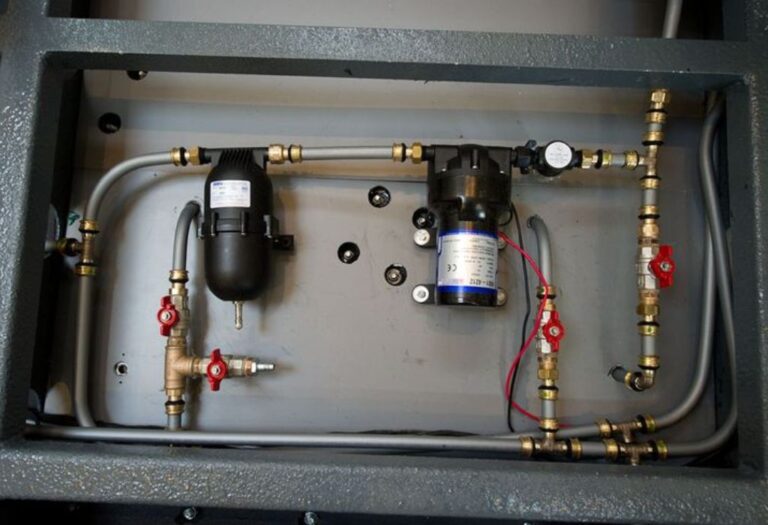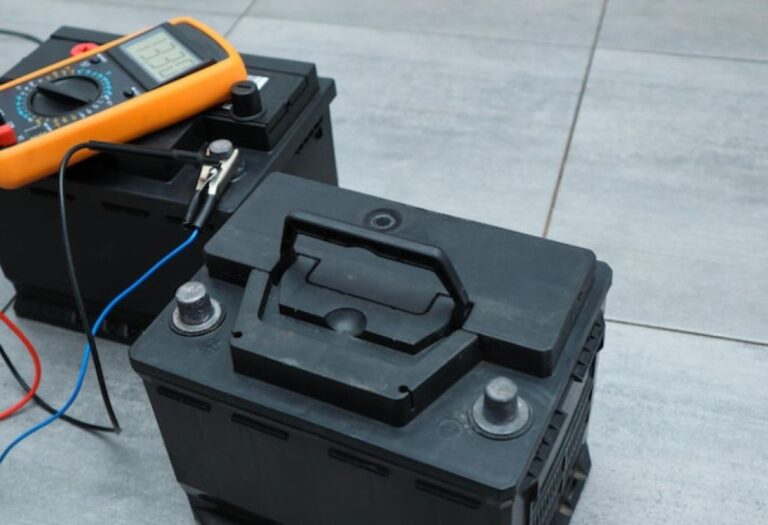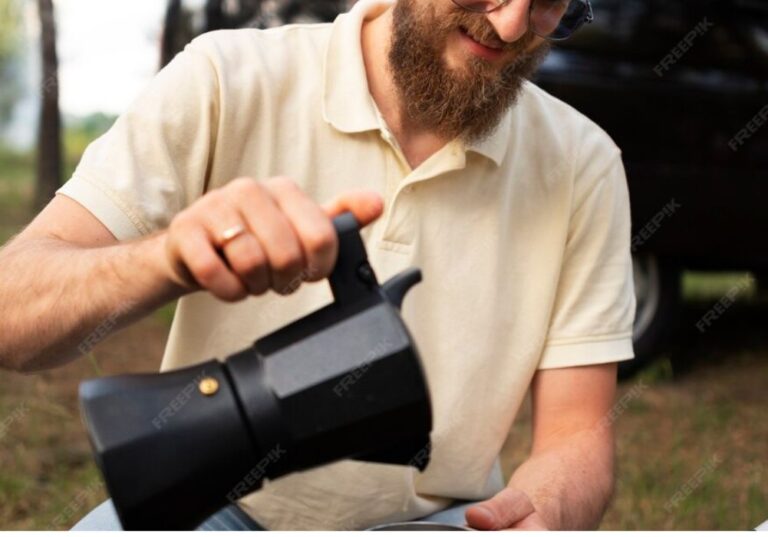Can RV Water Pump Freeze? How to Protect It This Winter
Imagine waking up in your RV on a freezing winter morning, expecting to pour a cup of coffee or rinse off the overnight frost, only to find no water flowing from the taps. The culprit?
A frozen RV water pump. For RV owners, this scenario is more common than many realize, especially in regions where temperatures dip below freezing at night.
The question arises: can RV water pump freeze, and if so, how can it be prevented?
Water expands when it freezes, and if left unprotected, it can damage the pump housing, seals, and internal components.
Repairing or replacing a frozen pump can cost anywhere from $400 to $800, according to Unique Camping & Marine (source).
Aside from potential costs, a frozen water pump can leave you without running water, disrupt your RV plumbing, and even create leaks that damage cabinets, flooring, and electronics.
With winter camping becoming increasingly popular, understanding how to protect your water system is essential.
This guide will cover everything you need to know to safeguard your RV water pump.
You’ll learn the temperatures at which pumps are at risk, signs of freezing, preventative measures like insulation and antifreeze, and winterization strategies.
By the end, you’ll have the knowledge to keep your water system safe, functional, and ready for any cold-weather adventure.
Understanding RV Water Pumps
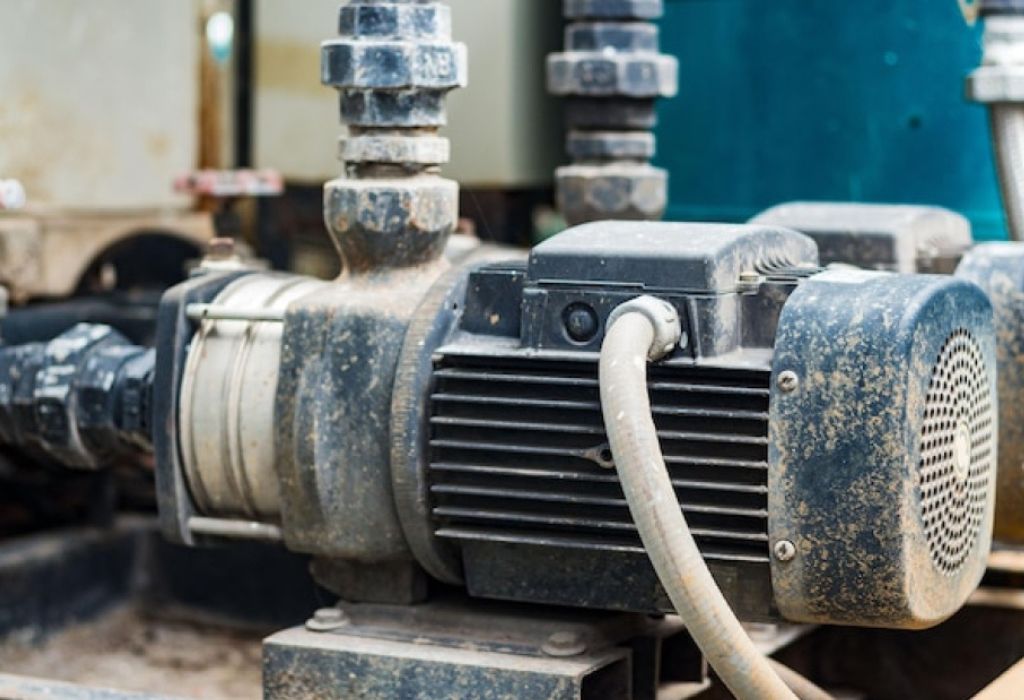
RV water pumps are critical for delivering water from your fresh water tank to faucets, showers, and toilets. They maintain consistent pressure, ensuring your RV’s plumbing operates like a small household system.
Most RV water pumps run on 12V DC power and activate automatically whenever a faucet is opened or a toilet is flushed. This on-demand operation conserves battery life and prevents unnecessary wear.
There are two primary types of RV water pumps: diaphragm pumps and centrifugal pumps. Diaphragm pumps are the most common due to their reliability and ability to maintain consistent pressure. Centrifugal pumps provide higher flow rates but are typically used in larger RVs or specialized applications (RV Travel).
Flow rates vary, with most pumps delivering 2.8 to 5.3 gallons per minute (GPM), sufficient for daily RV water needs. Proper maintenance, including inspecting hoses, connections, and filters, is essential for longevity and efficiency.
What is an RV water pump?
It’s a 12V pump that draws water from the fresh water tank and supplies the RV plumbing system.
How does an RV water pump work?
It turns on automatically when water is used, maintaining consistent pressure for faucets and toilets.
What types of RV water pumps exist?
Diaphragm pumps (common and reliable) and centrifugal pumps (higher flow, less common).
What is the typical water flow rate?
Most pumps provide between 2.8 and 5.3 GPM, adequate for normal RV usage.
Why is maintenance important?
Regular inspections prevent leaks, protect the battery, and extend the pump’s lifespan.
Risks of RV Water Pump Freezing
Leaving water in your RV pump during freezing temperatures can lead to severe damage. As water freezes, it expands, potentially cracking the pump housing, seals, and internal components.
A frozen water pump can also cause leaks that damage cabinets, flooring, and electronics. In addition, attempts to run the pump while frozen can burn out the motor, leading to costly repairs (Unique Camping & Marine).
Even a partially frozen system reduces water flow, making daily tasks difficult. Freezing can occur at temperatures slightly above 32°F due to wind chill or insufficient insulation, so vigilance is key.
Can a frozen RV water pump be repaired?
Yes, but repairs can be costly, often ranging from $400 to $800.
What happens if you run a frozen pump?
The motor can burn out or the internal components may crack.
Can freezing cause leaks?
Yes, expanding ice can rupture the pump housing or pipes, causing water damage.
At what temperature is the pump at risk?
Even temperatures slightly above freezing can damage an unprotected pump, especially with wind chill.
Are older pumps more vulnerable?
Yes, older or poorly maintained pumps are more susceptible to freezing and damage.
How to Prevent RV Water Pump Freezing
Insulating your RV water pump is one of the simplest ways to protect it from freezing. Foam insulation or reflective wraps help retain heat, slowing the freezing process and reducing stress on the pump.
Using RV-specific antifreeze is another effective method. Antifreeze lowers the freezing point of water in your system, protecting both the pump and plumbing lines during cold weather (RV Life).
Low-wattage, thermostatically controlled heaters or heat tape can also be applied near vulnerable components. These devices maintain a safe temperature, preventing ice formation in extreme conditions.
Does insulation really help?
Yes, it slows heat loss and reduces the risk of freezing.
What kind of antifreeze should be used?
Use RV-specific, non-toxic antifreeze safe for potable water systems.
Can heating devices prevent freezing?
Yes, thermostatically controlled heaters or heat tape maintain safe temperatures for the pump.
Should all water lines be treated?
Yes, ensure both the pump and connected pipes are protected with insulation or antifreeze.
Is preventive maintenance important?
Absolutely, regular inspections and protective measures reduce the likelihood of pump damage.
Winterizing Your RV Water System
Winterizing your RV water system is essential to prevent freezing damage during cold weather. The process involves draining all water, bypassing the water heater, and adding RV-specific antifreeze to protect pumps and pipes.
Draining the system ensures no standing water remains that could expand and crack components. Bypassing the water heater prevents antifreeze from entering it unnecessarily while still protecting all water lines (RV Life).
Adding antifreeze to the system safeguards the pump and plumbing. It lowers the freezing point of water, reducing the risk of ice formation even in sub-freezing temperatures.
When should winterization be performed?
Before the first freeze of the season or any extended period of cold weather.
Can winterization be done DIY?
Yes, with proper tools, RV-specific antifreeze, and following manufacturer guidelines.
What happens if you skip winterization?
Frozen water can crack pumps, pipes, and fittings, leading to costly repairs.
Is bypassing the water heater necessary?
Yes, it prevents unnecessary antifreeze use while protecting water lines.
How often should the system be checked during winter?
Regularly inspect for leaks, frost, or signs of freezing to catch issues early.
Troubleshooting Frozen Water Pumps
If your RV water pump isn’t working in cold weather, it may be frozen. Ice inside the pump or connected pipes can prevent water from flowing, causing the pump to run without output.
Start by inspecting the pump and nearby pipes for frost or ice buildup. Check fuses and breakers to ensure the pump is receiving power. Applying gentle heat, such as a hairdryer or space heater, can safely thaw frozen components without causing damage (Build a Green RV).
Never use open flames or excessive heat, as this can melt plastic components or warp metal fittings. Once thawed, run the pump briefly to verify normal operation and check for leaks before full use.
How can you tell if the pump is frozen?
No water flow despite the pump running and unusual noises from the pump.
Can frozen pumps be thawed safely?
Yes, using gentle heat like a hairdryer or low-wattage space heater.
Should you use direct flames to thaw a pump?
No, direct flames can damage components and create safety hazards.
What else should be checked if the pump isn’t working?
Ensure fuses, breakers, and the water source are functional and not frozen.
When should professional help be sought?
If the pump remains unresponsive after thawing or shows visible damage to internal components.
Long-Term Solutions for Cold Weather RVing
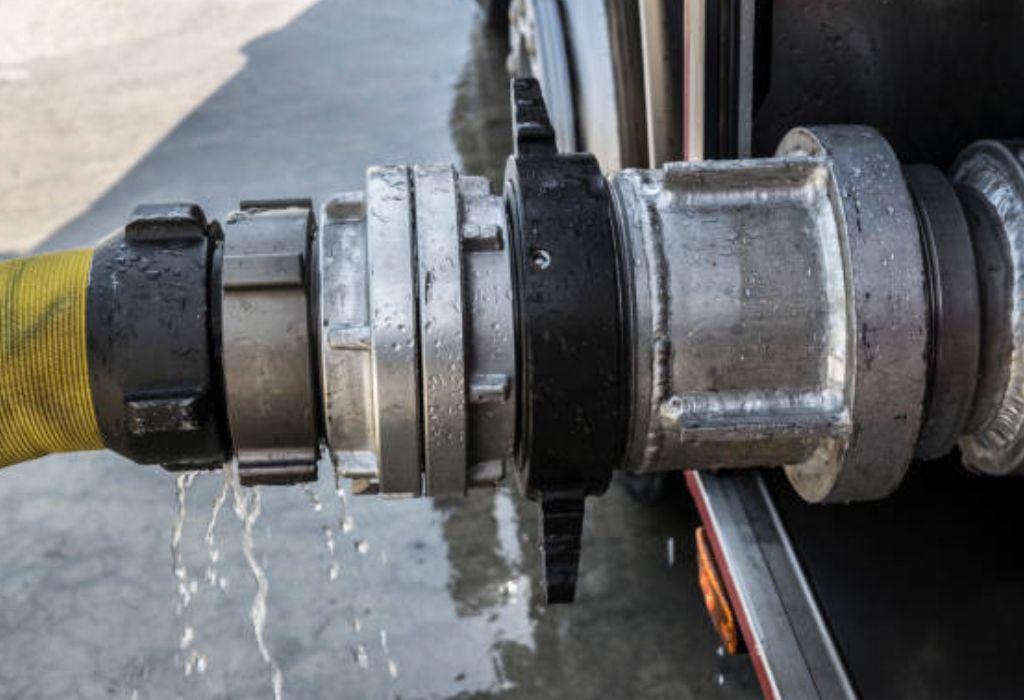
Investing in long-term solutions can protect your RV water pump and plumbing during winter. Heated water hoses prevent freezing when connected to external water sources, maintaining a reliable water supply in sub-freezing temperatures.
RV skirting is another effective solution. By enclosing the underside of the RV with insulated panels or foam, heat is trapped around vulnerable plumbing, reducing the risk of frozen pipes and pumps (Full Moon Adventure Club).
For frequent cold-weather RVers, consider four-season RVs, which feature enhanced insulation, heated compartments, and specialized plumbing designed to withstand extreme temperatures. Combining these measures with proper winterization ensures your water system remains safe and functional throughout the season.
What are heated water hoses?
Hoses with built-in heating elements that prevent water from freezing in cold conditions.
How does RV skirting help?
It traps heat underneath the RV, protecting pipes and pumps from freezing.
Are four-season RVs necessary for winter travel?
Not always, but they offer enhanced insulation and heating for extreme cold climates.
Can these measures completely prevent freezing?
While they significantly reduce risk, combining multiple solutions and proper winterization provides the best protection.
Should these solutions be combined with antifreeze?
Yes, using insulation, heating, and antifreeze together provides optimal protection for your water system.
Conclusion and Final Advice
RV water pumps are vulnerable to freezing in cold weather, which can cause costly damage and disrupt your water supply. Understanding the risk and implementing preventive measures ensures your RV remains functional and safe during winter.
Insulation, RV-specific antifreeze, heated hoses, skirting, and four-season RV features all play a role in protecting your water system. Proper winterization before the first freeze is critical to avoid ice damage, leaks, and pump failure.
Regularly monitoring water levels, battery status, and performing maintenance checks keeps your pump operational and extends its lifespan. Combining multiple protective strategies provides peace of mind and ensures your RV is ready for cold-weather adventures.
Can RV water pumps freeze even with precautions?
Yes, extreme temperatures can still pose a risk, but preventive measures greatly reduce the likelihood.
What is the best combination of protections?
Use insulation, antifreeze, heated hoses, skirting, and regular winterization together.
Is professional winterization necessary?
DIY winterization is effective if done correctly, but professionals can ensure complete protection.
How often should the system be checked during winter?
Regular inspections for frost, leaks, or malfunctioning components are recommended.
What is the key takeaway for RV owners?
Preventive care, monitoring, and proper winterization keep your water pump safe and your RV functional throughout cold months.
I’m David R. Coleman, the founder, lead writer, and lifelong tool enthusiast behind GarageToolPro.com. With years of experience in automotive repair, woodworking, and home DIY projects, I created this platform to share practical tips, detailed tool reviews, and step-by-step guides that help mechanics, hobbyists, and homeowners get the job done right the first time.

